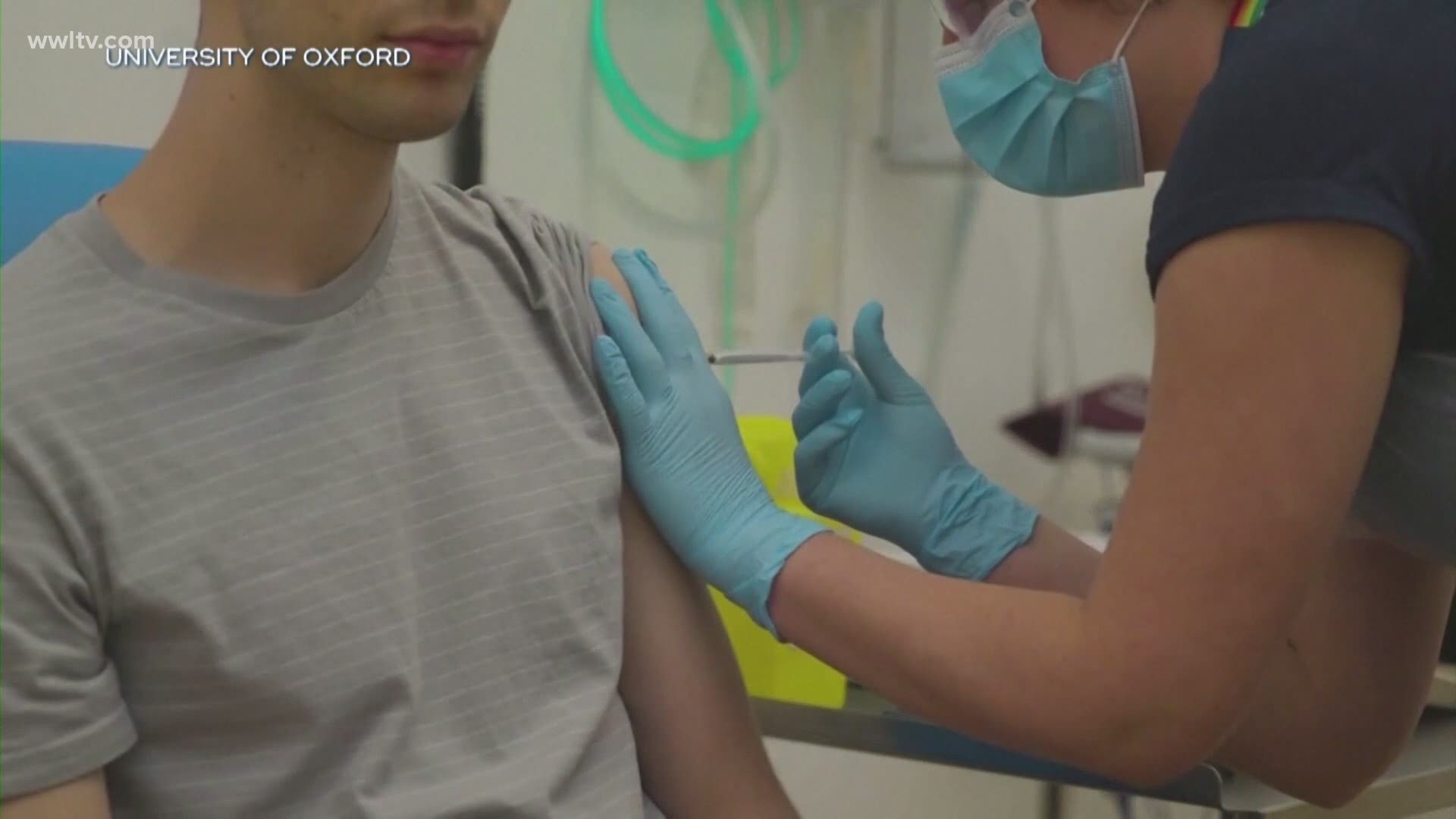The first batches of a COVID-19 vaccine are expected to arrive in Louisiana very soon. However, what kind of protection does it offer, and does it stop someone from spreading the virus to someone else?
After months of trying to create an effective COVID-19 vaccine, experts say several have shown promising results.
"At this point the vaccines we have seen so far are 90-95% effective," said Dr. Benjamin Springgate, LSU Health Chief of Community and Population Medicine. "That means in 90-95 percent of recipients who are similar to the participants in the drug trials, they will be able to fight off this virus for at least some duration of time so it's really promising. That is a great number honestly, it's much higher than what we have for the flu vaccine presently."
Distribution is set to begin soon. Given the high case counts that's good news. Especially since the vaccine will help our body create an immune response to the virus.
"And then later on if your body is again exposed to the Novel Coronavirus, to the COVID-19 virus, your body will be in a better position to fight it off," he said.
Long-term though, there are questions, because simply put, research hasn't gotten that far yet. For example, will we need to get vaccinated annually (just like with the flu shot)? It's possible.
"This virus mutates as well, so we have yet to learn what some of the potential mutations in the future may do as far as the effectiveness of these initial vaccines," said Dr. Springgate.
Can you still get sick if you've gotten the shot? It's possible, especially since it takes a few weeks to build immunity.
"At this point, the vaccines we have seen so far are 90-95% effective, so that means among people who have received the vaccine in the clinical trial, 5-10% still did become infected," Dr. Springgate said. "So that tells us there is a possibility that one can contract this virus."
What about, if vaccinated, can you still spread the virus to others? That's unclear, though possible.
"If they're vaccinated and later on they do contract the virus from someone else," said Dr. Springgate. "It's possible they may be able to still serve as someone who could communicate that virus. But it's diminished because theoretically, the amount of virus that could replicate in their body and could be infecting them, and it could be spreading to someone else, has been decreased because of the strength of the immune response given by that vaccination. So the vaccination can prevent catching the disease, and the vaccination in all likelihood should be able to decrease the likelihood that you have a severe case as well as you might spread it further or as much, perhaps, as if you hadn't been vaccinated.
Experts admit, there's still much to learn. However one thing they say without doubt, is that it's safe.
"One thing we do know, is the virus is not safe. The virus has killed hundreds of thousands of people in our country and has led to millions of hospitalizations. This virus kills people," said Dr. Springgate. "If we want to focus on the bigger picture here the overwhelming benefits seems to outweigh the risk based on what we understand at this point."
Like with the flu shot, there are mild to moderate side effects after getting the shot. Those include one or two days of tiredness, aching muscles, and pain at the injection site.

